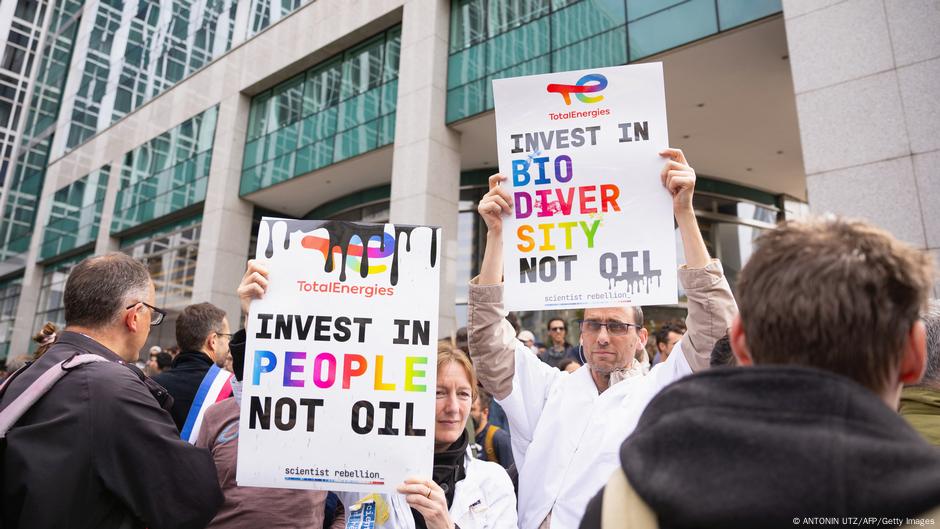
The Paradox of Climate Action and Fossil Fuel Investments
Despite global commitments to address climate change, the financial sector continues to pour significant amounts of capital into fossil fuel industries. This contradiction raises critical questions about the effectiveness of divestment efforts and the real-world impact of climate-conscious investment strategies.
In 2016, a notable shift occurred when AkademikerPension, a Danish pension fund, decided to withdraw $1 billion from major oil companies such as ExxonMobil, Shell, and BP. This decision was driven by concerns over the long-term financial viability of continued investments in fossil fuels, especially as global temperatures rose. According to Anders Schelde, the fund's chief investor, the move was not only about achieving good returns but also about investing responsibly. The fund redirected its capital toward more sustainable alternatives, including renewable energy companies like Orsted, a leading Danish wind energy firm.
However, this individual act of divestment did not significantly affect the broader fossil fuel industry. In fact, the sector continues to attract substantial investments, with an estimated trillion dollars flowing annually. Moreover, 2024 saw record levels of oil, gas, and coal consumption globally, alongside the issuance of new exploration licenses covering an area equivalent to Sweden.
The Challenge of Shifting Investment Priorities
While renewable energy sources such as solar and wind have become increasingly cost-effective, their share of global investment remains modest compared to fossil fuels. A report by BloombergNEF revealed that for every $100 invested in renewable infrastructure, $112 is directed toward fossil fuels. This imbalance highlights the challenges faced by the transition to a low-carbon economy.
The International Energy Agency (IEA) notes that rising demand for energy, driven by artificial intelligence, data centers, and the push for energy independence, is spurring investment in renewables. However, meeting global climate targets requires doubling annual investments in renewable power. At the same time, the fossil fuel industry remains highly profitable, offering attractive short-term returns that continue to draw investors.
The Role of Major Financial Institutions
Around 60 of the world’s largest banks have invested approximately $7 trillion in the fossil fuel industry since the 2015 Paris Climate Agreement, according to a 2024 report by several NGOs. Despite pledges to align investments with emissions reduction goals, these commitments remain voluntary and lack enforceable mechanisms. Initiatives like the Net-Zero Banking Alliance aim to support banks in meeting climate targets, but their impact has been limited so far.
Nadia Ameli, a professor in climate finance at University College London, points out that while some banks may reduce their exposure to fossil fuels, the overall level of investment remains unchanged. “Someone else always steps in,” she explains, highlighting the persistent flow of capital into the sector.
Divestment vs. Engagement: A Complex Debate
Divestment from fossil fuels has gained traction in recent years, with over 1,600 organizations, including universities, churches, and large funds, committing to either partial or full withdrawal from the industry. These groups are motivated by both financial risk—such as the potential for stranded assets—and a desire to take meaningful climate action.
However, the debate between divestment and engagement remains contentious. Critics argue that rather than withdrawing investment, it is more effective to exert influence from within companies to drive change. Shareholders can use their ownership to shape corporate behavior, potentially steering firms toward greener practices.
Research on the effectiveness of these approaches is mixed. Some studies suggest that increased green fund ownership can lead to reduced emissions, while others indicate that divestment may lower a company’s market value without necessarily reducing its carbon footprint. Ameli notes that even if one investor exits, another is likely to take their place, maintaining the status quo.
The Path Forward
Despite the challenges, investment in renewables is growing. For AkademikerPension, the divestment strategy has proven profitable in the long term, though short-term performance has been less favorable. Renewable energy companies often face unique challenges, including market fragmentation and currency volatility, which complicate large-scale investments.
Experts emphasize the need for binding regulations to accelerate the transition away from fossil fuels. France, for example, is implementing transparent assessments of its financial sector’s exposure to fossil fuels, aiming to increase pressure on institutions to shift toward renewable investments. Similar regulatory efforts are being explored across the EU, with the goal of influencing global banking practices.
As the climate crisis intensifies, the role of financial institutions in shaping a sustainable future becomes ever more critical. While voluntary commitments may provide a starting point, meaningful progress will require stronger regulatory frameworks and a collective shift in investment priorities.
